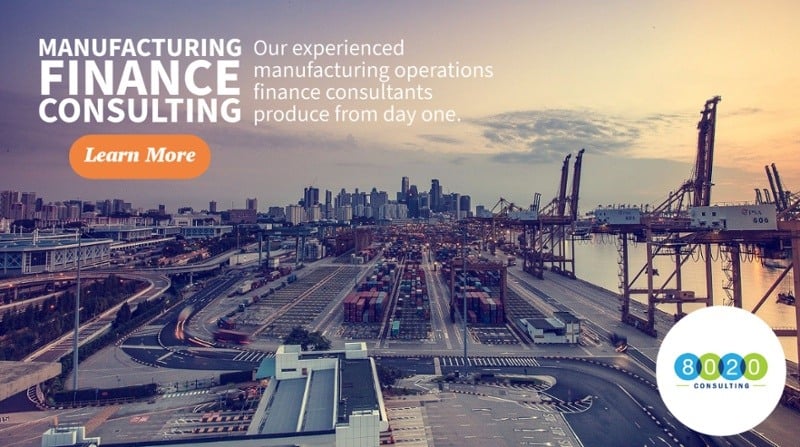
Are you a Chief Financial Officer (CFO) working tirelessly to predict the future? Or do you find yourself consumed with closing the books and meeting deadlines? In the post-pandemic Consumer Packaged Goods (CPG) industry, the ability for a CFO to anticipate what lies ahead and establish plans to adapt to evolving consumer demands has become the new paradigm. CFOs are increasingly focused on CPG data insights that can identify opportunities, mitigate risks and support long-term strategic decision making.
Over the past three years, as the supply chain experienced unprecedented shocks due to the pandemic, it became evident that the forward-looking CFOs were better equipped to weather the storm and continue leading their businesses to success. However, many CFOs find it challenging to adopt a forward-looking approach for various reasons. Often, it’s due to a lack of available resources, limited experience in future prediction or the absence of a well-defined long-term strategy.
Six Foundational Tools to Help CFOs Collect and Act on CPG Data Analytics
I once worked for a food company that had been a family business for over three decades. The company held the number-one market position, and its leadership felt secure, but they realized the need to “modernize” and establish a framework that would foster company alignment through monthly and quarterly business reviews. Although the company had a small accounting team managing basic financial processes, there was no one, apart from a CFO working 70+ hours per week, to support long-term strategy.
One of my initial lines of questioning when joining the company centered on the financial planning process—reporting, monthly analysis, budgets and so on. I discovered a critical missing link in the CPG business: the connection between financial forecasting, marketing forecasts and the supply chain forecast. It became apparent that each department operated in silos, lacking consistent alignment. To address this issue, I helped set up monthly and quarterly business reviews, facilitating collaboration and ensuring that marketing (i.e., demand) connected with production (i.e., supply), thereby keeping finance informed. These solutions, aimed at aligning executive leadership, marked the beginning of a larger investment in the company’s future.
A CFO’s role involves enhancing transparency in current financial processes while guiding the long-term strategic plan. The company I supported recognized the importance of transitioning from a backward-looking organization to a forward-looking one. Together, we outlined a roadmap that highlighted six key tools the CFO could develop in partnership with executive leaders, enabling them to reveal CPG data insights and prepare for the future. These tools formed the foundation for the CFO’s role in the CPG business:
Marketing Analysis
Led by the sales team, this model analyzes market trends and consumer behavior, providing valuable insights for the strategic plan. It identifies new revenue streams and potential areas of growth, enabling the company to stay ahead of market shifts.
Investment Strategy/Capital Planning
Primarily focused on manufacturing leaders with IT involvement, this process evaluates the cost-effectiveness of existing manufacturing locations. Concurrently, it considers the decision to upgrade manufacturing account systems and potentially relocate manufacturing and distribution centers to optimize operations.
Risk Management
This responsibility rests with executive leadership. CFOs must be particularly aware of critical points of failure and perform contingency planning accordingly. For instance, if the price of a raw material significantly increases, CFOs need to assess the impact on profitability and explore alternatives to ensure the company remains sustainable.
Scenario Management
CFOs engage in the “What if Game” to prepare for various economic, market and industry shifts. By considering multiple scenarios, CFOs can help the leadership team anticipate future challenges and opportunities, reducing the company’s vulnerability to unexpected changes.
Supply Chain Management
A vital aspect of a CFO’s role in the CPG industry is effective supply chain management, which involves close collaboration with supply chain leadership. The primary goal is to ensure that products are available when needed. CFOs work with other executives to develop vendor strategies and establish strong relationships with logistics partners. By taking a long-term view, CFOs can contribute to the development of strategies that enhance efficiency and ultimately improve margins through cost reductions.
Financial Planning
At the core of a CFO’s responsibilities lies financial planning. By utilizing a range of tools and processes, CFOs gain a comprehensive understanding of the company’s financial landscape, enabling them to create meaningful short-term and long-term plans. This includes financial forecasting, budgeting, cost management (cost of sales and operating expenses), and cash flow management (working capital). With these financial tools in place, CFOs can make informed decisions that align with the company’s strategic objectives.
Looking Forward
By embracing a proactive approach and investing time and effort into future prediction, CFOs can align their companies toward effective strategies, identify opportunities and mitigate risks. This approach and focus on CPG data insights ultimately leads to successful outcomes for the company and its stakeholders. Which begs the question: how well does your crystal ball work?
Contact us to learn more about how our team of 120+ finance and accounting consultants can support the operational objectives within your business. You can also download our service sheet or explore the related content below:




